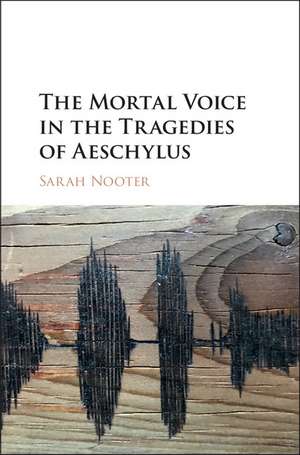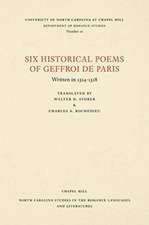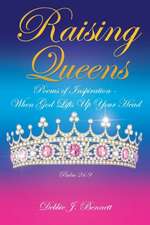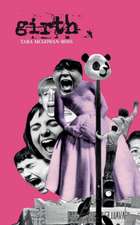The Mortal Voice in the Tragedies of Aeschylus
Autor Sarah Nooteren Limba Engleză Hardback – 25 oct 2017
| Toate formatele și edițiile | Preț | Express |
|---|---|---|
| Paperback (1) | 225.20 lei 6-8 săpt. | |
| Cambridge University Press – 10 aug 2022 | 225.20 lei 6-8 săpt. | |
| Hardback (1) | 696.12 lei 6-8 săpt. | |
| Cambridge University Press – 25 oct 2017 | 696.12 lei 6-8 săpt. |
Preț: 696.12 lei
Preț vechi: 782.16 lei
-11% Nou
Puncte Express: 1044
Preț estimativ în valută:
133.20€ • 145.14$ • 112.24£
133.20€ • 145.14$ • 112.24£
Carte tipărită la comandă
Livrare economică 23 aprilie-07 mai
Preluare comenzi: 021 569.72.76
Specificații
ISBN-13: 9781107145511
ISBN-10: 1107145511
Pagini: 318
Dimensiuni: 159 x 235 x 21 mm
Greutate: 0.57 kg
Editura: Cambridge University Press
Colecția Cambridge University Press
Locul publicării:New York, United States
ISBN-10: 1107145511
Pagini: 318
Dimensiuni: 159 x 235 x 21 mm
Greutate: 0.57 kg
Editura: Cambridge University Press
Colecția Cambridge University Press
Locul publicării:New York, United States
Cuprins
Introduction; 1. Voice, body, stage; 2. Voice in early Aeschylean drama and Aristophanic parody; 3. Voice and ventriloquism in Agamemnon; 4. Voice and the mother in Choephori; 5. Voice and the monstrous in Eumenides.
Notă biografică
Descriere
This book argues that the voice is a crucial link between bodies, thought, and mortal identity in the tragedies of Aeschylus.













